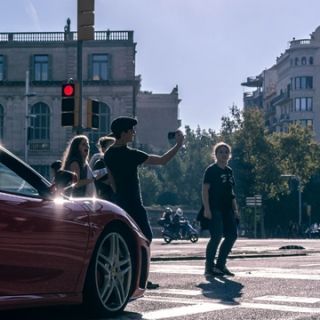
'Juan invited me'
By Josué and Laura Maldonado, Guatemalan missionaries to Spain — In a sense, Juan invited us to Spain.
After 10 years working with youth ministry in Guatemala through drama, evangelism and discipleship, we took a short-term trip to Spain.
After we preached to one youth group, I asked a girl, “How did you come to the church?” She answered: “Juan invited me.”
I asked a boy the same question, and he answered me the same way. I asked a third kid; she gave me the same answer.
After that, I thought, “I have to meet Juan!”
When I did, Juan shared with me his life, telling me that he always wanted to be a disciple and to have a mentor, so he could learn more from the Bible. But his pastor was only focused on adults.
Juan changed my life, because in Guatemala, he would be the dream disciple of any youth leader, but in Spain, he was alone. That’s why we are here in Spain — youth need to have mentors, friends and leaders so they can grow in Christ and bring the message of his love and salvation to their friends and families.
Now we work in a ministry focused on Spanish youth, as God raises up a new generation to expand his church and his mission in Spain. On a local level, we strengthen believers, serve in discipleship, do evangelism and develop activities for the youth of a Spanish church.
On a national level, God has allowed us to be director assistants for the Spanish missions event called MISION POSIBLE. This gathering encourages young Spaniards to focus on their role in the Great Commission. We believe that God has great plans for young Spaniards and it gives us joy to be part of what God is doing in this country.
Learn more
- Click here to watch a short video from the Maldonado family.
- If you're from Latin America and interested in partnering with SEND to reach the unreached, click here.
Additional Posts




